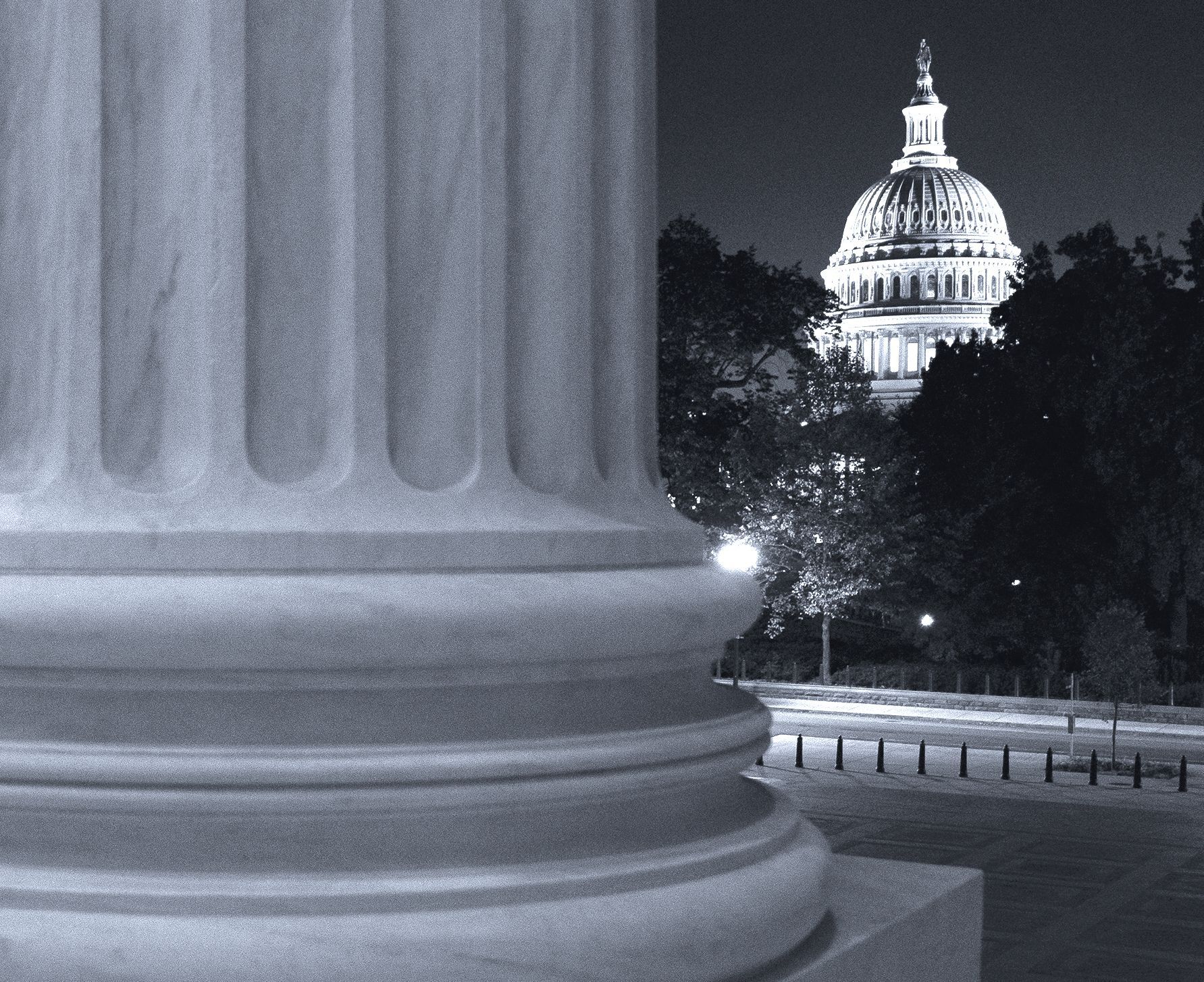
DOJ's Most Recent Monopolization Case Reflects Several Agency Priorities Including Expansion of Section 2 to Respond to Headline-Grabbing Popular Demands
May 28, 2024
On May 23, 2024, the U.S. Department of Justice (DOJ), along with 30 state and district attorneys general, filed a lawsuit seeking to break-up Live Nation Entertainment Inc. (Live Nation) and its wholly owned subsidiary, Ticketmaster LLC (Ticketmaster).1 The DOJ alleges Live Nation has a monopoly over ticketing, artist promotion, artist management and venue ownership and operation—all resulting in a pervasive influence over the entire music industry. The DOJ alleges Live Nation harmed competition and extended its monopoly power in violation of the Sherman Act by 1) colluding with competitors and retaliating against potential entrants in the U.S. concert promotions market, 2) imposing exclusivity requirements to prevent venues from using rival ticketing or promotional services, 3) restricting artist access to venues unless artists use Live Nation's promotional services and 4) acquiring smaller and regional competitors. According to the DOJ, this conduct hurts performers, venues, and concertgoers who must pay a “Ticketmaster Tax” in the form of fees that ultimately raise prices for fans.
This monopolization lawsuit is the latest chapter in a long history between the DOJ and Live Nation. In 2009, when Live Nation proposed to acquire Ticketmaster, the DOJ expressed concern about combining the companies’ large market shares in ticketing and concert promotion. The transaction closed but only after the DOJ entered a consent decree with the parties, requiring Live Nation to divest certain assets and license Ticketmaster's ticketing platform to competitors.2 The consent decree also prohibited Live Nation from retaliating against venues that worked with another primary ticketing service.
In 2020, the DOJ filed a motion alleging that Live Nation had violated the terms of the consent decree by retaliating against venues that opted to use competing ticketing services, including by withholding live concerts that it promoted and managed.3 The parties ultimately agreed to modify the order, clarifying that withholding concerts in response to a venue selecting another primary ticketing service was prohibited conduct under the order and extending the consent decree's term until 2025.
In this latest move against Live Nation, the DOJ alleges new wrongdoing by the company—namely that Live Nation and Ticketmaster pursued a variety of independent exclusionary practices that built up the company’s power on one side of the market and allowed it more influence to condition service in other parts of the market. In the DOJ’s complaint, the individual practices are described as working together to sustain an illegal monopoly in violation of the Sherman Act and the DOJ “seeks to break up Live Nation-Ticketmaster's monopoly and restore competition for the benefit of fans and artists.”4
The complaint recounts many specific exchanges between Live Nation and members of the industry, alleging that each constitutes anticompetitive conduct.
As described in the Complaint:
- First, Live Nation maintains and exercises its power over rivals by colluding with some competitors and retaliating against others. The complaint details a partnership between Live Nation and Oak View Group, a venue development and management company, in which the two companies agreed not to compete on artist promotions and arena consulting. The two companies would often partner with each other instead of competing for contracts with venues by opting to share profits. The complaint quotes Oak View’s CEO as saying to Live Nation that “We have never promoted without you. Won’t.” and that the CEO was “[m]ore than happy to do these deals thru LN as I have always been aligned [...] I never want to be competitors.”5 Moreover, the complaint details instances of Live Nation threatening commercial retaliation against companies who compete for artist promotion contracts. The complaint highlights an incident between Live Nation and TEG, a rival promotions company, when TEG promoted prominent artists at a venue in Los Angeles. In response to TEG using a different ticketing service, StubHub, Live Nation leveraged its exclusive ticketing deal with the venue to deny entry to concertgoers with a StubHub-issued ticket.
- Second, Live Nation’s dominance in live event and concert promotions allows the company to wield significant power over major concert venues forced to use Ticketmaster for primary ticketing services to benefit from Live Nation concerts or risk losing access to them. If a venue decides to use a rival ticketing company, the venue risks losing access to Live Nation concerts, which are often highly profitable for venues. The complaint highlighted an incident where one venue used SeatGeek for primary ticketing. Live Nation responded by re-routing concerts to other venues and placing restrictions on the venue for secondary sales using SeatGeek. Eventually, the venue returned to Ticketmaster a year later. Under the power dynamic Live Nation wields over venues, many venues enter long-term, exclusive agreements with Ticketmaster, covering more than 75 percent of concert ticket sales at major concerts and effectively creating a barrier for any competing ticketing services. Live Nation’s CEO described the dynamic as “[w]e can’t say to a Ticketmaster venue that says they want to use a different ticketing platform, ‘If you do that, we won’t put shows in your building.’ ... [But] we have to put the show where we make the most economics, and maybe that venue [that wants to use a different ticketing platform] won’t be the best economic place anymore because we don’t hold the revenue.”6
- Third, Live Nation asserts its power over artists by threatening to lock the artists out of Live Nation-owned and controlled venues. Live Nation has an amphitheater portfolio that includes at least 40 of the top 50 amphitheaters in the United States and more than 60 of the top 100 amphitheaters in the United States. Given the number of amphitheaters Live Nation owns in the United States, artists who wish to perform at an amphitheater for their tour will likely encounter booking at one or many of Live Nation's amphitheaters. As a result, Live Nation forces artists to use its promotional services for their tours or risk losing access to Live Nation's portfolio of amphitheaters.
- Fourth, Live Nation pursued a strategy to acquire nascent competitors to maintain its monopoly on live entertainment. Live Nation has acquired independent promoters despite the lack of financial sense. Live Nation sought "many of these acquisitions of competitors on the 'edge' as necessary to protect its 'moat' around the live concert ecosystem."7 For example, when describing an acquisition of a regional independent promoter, a Live Nation Executive wrote, “The numbers are not super exciting and this feels like more of a defensive move to (I) Keep [rival] AEG out of the region especially creating situation where [a well-known artist manager] can play both sides in Nashville. [The acquisition] helped “grow[] our moat in the [Nashville] market.”8 Once Live Nation acquired the venues, Live Nation would force those venues to use Ticketmaster, resulting in competing ticket services going out of business.
The complaint is noteworthy because the DOJ is seeking structural relief under the Sherman Act, which would have the effect of unwinding a merger that it investigated and policed for over a decade. The DOJ alleges that competition cannot be restored without this remedy: Live Nation is too intertwined within the live entertainment industry, given its role as ticketer, promoter, artist manager, and venue owner. According to the DOJ, Live Nation's "flywheel" business model—in which Live Nation can capture fees and revenues from fans, use the revenue to enter into exclusive promotion agreements with artists, and then use its dominant position among artists to force venues into long term exclusive ticketing deals—forecloses competitors and prevents Live Nation from having to face market forces that would lower fees for fans.
The lawsuit continues a recent trend of aggressive antitrust enforcement in the United States, with a particular focus on companies whose high market shares have persisted for long stretches of time. It also exemplifies this Administration’s willingness to rethink the merger policy of the past. Companies should take note of the following takeaways:
- The antitrust agencies continue to use Section 2 of the Sherman Act to address concerns about serial acquisitions of smaller players and exclusivity agreements;
- The antitrust agencies will point to DOJ’s lawsuit as evidence that it should block more mergers between companies in adjacent markets, rather than focusing enforcement efforts on mergers between horizontal competitors; and
- The lawsuit will also likely reinforce the agencies’ recent stance against merger consent decrees that require behavioral promises.
If you have any questions about this client alert or how these recent antitrust enforcement trends could affect your company, do not hesitate to reach out to Maureen Ohlhausen, Jamillia Ferris, Taylor Owings, Brendan Coffman, or any member of Wilson Sonsini Goodrich & Rosati's antitrust and competition practice.
[1] See United States v. Live Nation Entertainment, Inc., et al, No. 1:24-cv-03973, Compl, (2d Cir. May 23, 2024).
[2] See Ticketmaster, Final Judgment (D.D.C. July 30, 2010).
[3] See Ticketmaster, Mot. to Modify Final Judgment & Enter Am. Final Judgment (D.D.C. Jan. 8, 2020).
[4] See Press Release, DOJ, Justice Department Sues Live Nation-Ticketmaster for Monopolizing Markets Across the Live Concert Industry, (May 23, 2024), https://www.justice.gov/opa/pr/justice-department-sues-live-nation-ticketmaster-monopolizing-markets-across-live-concert.
[5] Complaint, Live Nation Entertainment, supra note 1 at ¶ 74.
[6] Complaint, Live Nation Entertainment, supra note 1 at ¶ 58.
[7] Complaint, Live Nation Entertainment, supra note 1 at ¶ 117.
[8] Complaint, Live Nation Entertainment, supra note 1 at ¶ 123.
- Privacy Policy
- Terms of Use
- Accessibility




